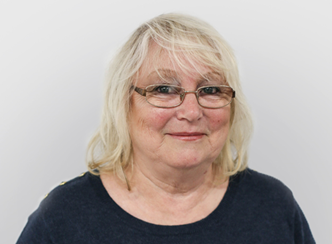Spire Elland consultant Ms Susan Kinder discusses stress at both work and home
05 November 2019
Stress is something that affects every one of us so knowing how to manage it better, in all areas of our lives, will help us to benefit from good physical and mental health.
Stress can be really good for us:
- It can motivate and empower us
- It can increase our confidence and sense of worth
- It can help us to be more productive and more committed
- And feeling good about ourselves can help us have a better lifestyle and better work-life balance
As long as the demands on us don’t outweigh our resources
Too much stress affects workplace, family and social relationships. We become unavailable to others because we’re constantly trying to beat deadlines, get things done and move onto whatever’s next on the list. When it all starts feeling out of control and we’re constantly fire-fighting it’s likely we can’t keep up the pace and things deteriorate. Communication falters, we fear being judged by others and we can become anxious and depressed. So we need to be aware of what the demands on us are, what support we have around us, clarify what we’re supposed to be doing and work out what changes we need to make before we hit the low point.
Stress can also be really bad for us:
- It can make us irritable and argumentative
- It can make us less productive and result in decreased performance
- It can make us avoid or withdraw from the things we really value
- It can make us feel useless and worthless
Too little stress is as harmful as too much stress
Too little stress results in boredom and fatigue. When our skills and abilities aren’t being used to the full we become repetitive, lethargic and frustrated. This sometimes makes us feel isolated or excluded and worthless. We may need to re-evaluate our roles, take new opportunities and make some changes. And it’s all about keeping ourselves healthy mentally and physically. We have to work out what the triggers are and start to look after ourselves, because if we don’t look after ourselves it will become increasingly difficult to look after those other people who currently depend on us at work and at home, or who may do in the future.
So how do we keep healthy and vital?
We do it by valuing ourselves, identifying our needs, and getting the right balance on the stress front. Here are some tips for managing difficult and fast-paced lives, as well as difficult and slower paced-lives:
- Be realistic about the goals you set yourself, question your expectations of you and the expectations others have of you
- Be nice to yourself, a little self-compassion goes a long way
- Eat healthily, we all know what this means, but if you can make time to have a healthy diet you can also have treats
- Plan your time, time management is so important, not just at work but on the school run, meal times, social and leisure activities...
- Take advantage of offers of CPD days and training opportunities to update skills and knowledge – make yourself as employable as possible (on your terms!)
- Take breaks at work, yes, it’s always difficult but negotiate with colleagues to create a give and take atmosphere
- Always take all your holidays, everyone needs them to refresh, relax and recuperate resources
- Try out some new social or leisure activities so you don’t get stuck in a rut
- Make more time for that intimate relationship, couple time is really important – and if you’re still looking, see previous tip!
- Sleep, so important for every one of us, being able to switch off and relax is about practice
- Enjoy the moment you’re in, take the time to ‘be’ rather than constantly ‘doing’
- And be available on a regular basis to your family and loved ones – they’ll love you even more for it
We can’t change the past, but we can learn from it. We can’t see the future but we can make it brighter by knowing what we want and what we don’t want. It’s your decision. And the most useful thing you can do when you recognise you need a bit of help? Just ask!
Meet the consultant
Ms Susan Kinder is a Counsellor, Psychotherapist, Clinical Supervisor/Consultative Support at Spire Elland Hospital. Ms Kinder currently works as a private practitioner with individuals, couples and young people. She does also take on short-term contracts with corporate clients and occupational health/wellbeing organisations. Ms Kinder can offer you a safe and welcoming service designed around you and the issues you wish to explore.


